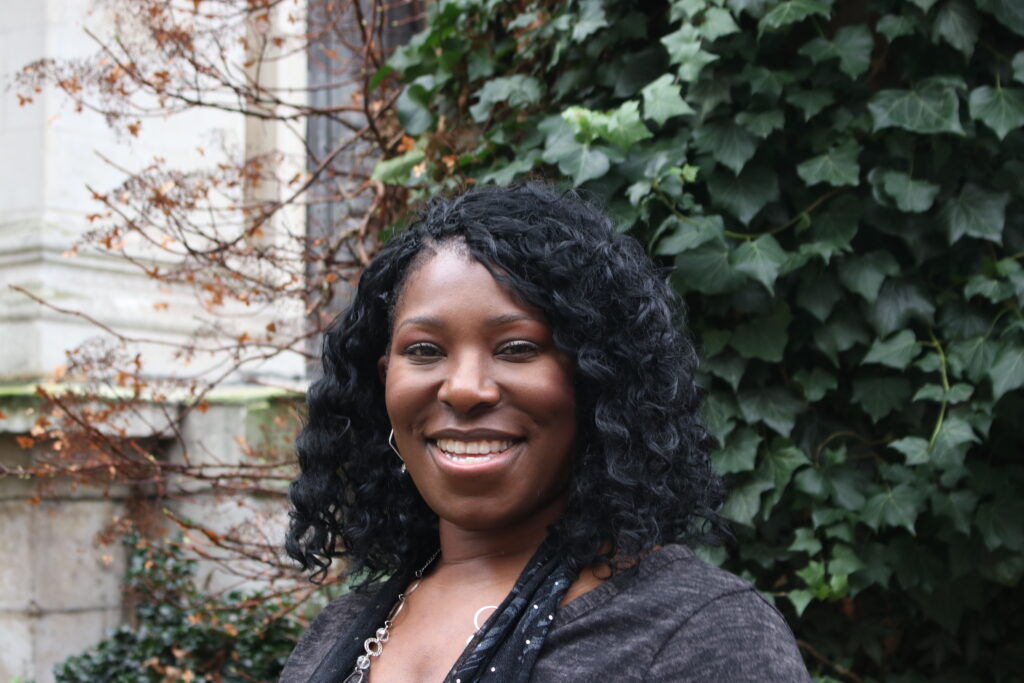As we approach what could be a new era in youth support, it is increasingly clear that our current approaches are not merely insufficient – they are fundamentally misaligned with the complex, interconnected reality of young people’s lives, writes Ndidi Okezie OBE, UK Youth chief executive officer. UK Youth’s upcoming Joined-Up Summit of cross-sector leaders in Birmingham on November 7 will answer the question, what is working for young people and how do we scale it?
Both the summit and the proposed new Joined Up Institute represent more than a call for better collaboration; they are a radical reimagining of how we conceptualise and deliver support for our young people.
At the heart of this issue lies a troubling truth: our systems have fragmented the young person. We have created silos – education, health, social care, criminal justice – each addressing a slice of a young person’s life as if these aspects exist in isolation. This fragmentation is not just inefficient; it is actively harmful, failing to recognise the intricate interplay between different facets of a young person’s experiences and needs.
Equally concerning is the isolation of professionals working within these silos. Youth workers, teachers, social workers and health professionals often operate in separate spheres, each with their own language, methodologies and metrics of success. This isolation not only limits our collective understanding of what truly works for young people, but also stifles innovation and the spread of best practices across sector lines.
The Joined Up Institute is not just about fostering collaboration between these isolated professionals – it is about fundamentally reshaping how we approach ongoing learning and professional development in youth support. It is a recognition that to truly understand and embed what works for young people, we need to break down the artificial barriers between disciplines and create spaces for integrated learning and practice about issues that affect young people in all spaces, such as mental health, racial equity and employability.
Consider the potential impact: a youth worker gaining insights from mental health professionals about trauma-informed approaches; educators learning from social workers about the impact of community dynamics on learning; criminal justice professionals understanding the role of creative arts in youth engagement. This cross-pollination of ideas and approaches could revolutionise how we support young people, leading to more holistic, effective interventions.
The Joined Up Institute is about fundamentally reshaping how we approach ongoing learning and professional development in youth support.
Ndidi Okezie OBE, UK Youth chief executive officer
Achieving this vision requires more than just goodwill and occasional cross-sector roundtables. It demands a systematic institutionalised approach to shared learning and development. The Joined Up Institute proposes to create a space where professionals from all sectors work together not just to share knowledge, but to co-create new understandings and embed approaches. It’s about developing a common language and shared manuals for implementing solutions for young people’s needs and measuring success.
This approach also recognises the critical importance of including young people’s voices in this process. Too often, young people are treated as passive recipients of services, rather than active participants in their own development. The Joined Up approach seeks to centre young people’s experiences and insights, ensuring that our collective learning is partnered with the grounded lived realities of those we aim to support.
The challenges we face in implementing such a radical shift are significant. Entrenched institutional cultures, funding structures that reinforce silos and the sheer inertia of established ways of working all present formidable obstacles. Yet, the potential benefits – for young people, for professionals and for society as a whole – make this a challenge we must embrace.
As we look towards the Joined Up Summit on November 7 and the establishment of the Joined Up Institute in 2025, we stand at a crossroads. Will we continue with our fragmented, siloed approaches, or will we have the courage to reimagine how we support young people? The choice is ours, and the stakes could not be higher.
Three calls to action for you
- Challenge your assumptions: Reflect deeply on how your current practices might unintentionally fragment young people’s experiences. Identify areas where a more integrated approach could lead to better outcomes
- Seek cross-sector learning opportunities: Do not wait for formal initiatives. Start reaching out to professionals in other sectors now. Arrange shadowing days, joint training sessions or informal knowledge-sharing meetups.
- Amplify youth voices: Create meaningful opportunities for young people to shape your approach. Go beyond consultation to true co-creation, allowing their insights to drive innovation in your practice.
This column first appeared in Children & Young People Now on October 29, 2024
About UK Youth
UK Youth is a leading charity with a vision that all young people are equipped to thrive and empowered to contribute at every stage of their lives. With an open network of more than 8,000 youth organisations and nation partners; UK Youth reaches more than four million young people across the UK and is focused on unlocking youth work as the catalyst of change that is needed now more than ever. To find out more, visit ukyouth.org
UK Youth is involved in a range of programmes designed to help young people thrive, such as outdoor learning, physical literacy, social action and employability, including Hatch, a youth employability programme run in partnership with KFC. For more on UK Youth’s programmes, see ukyouth.org/what-we-do/programmes
The post Beyond collaboration: Reimagining how we support young people appeared first on UK Youth.



